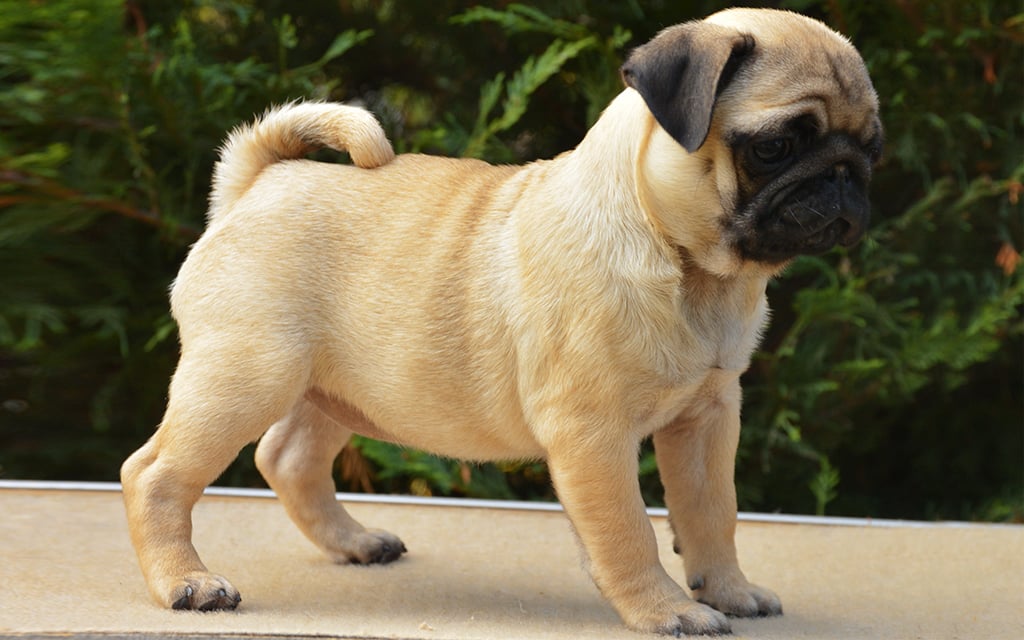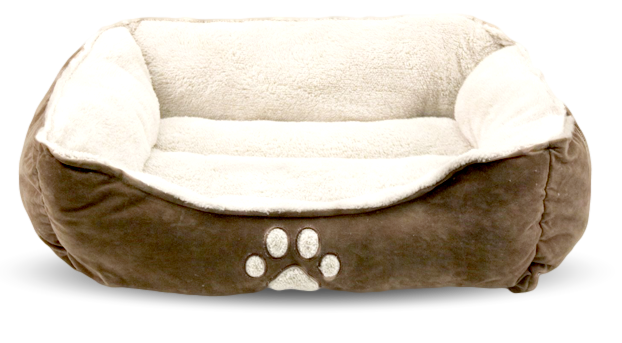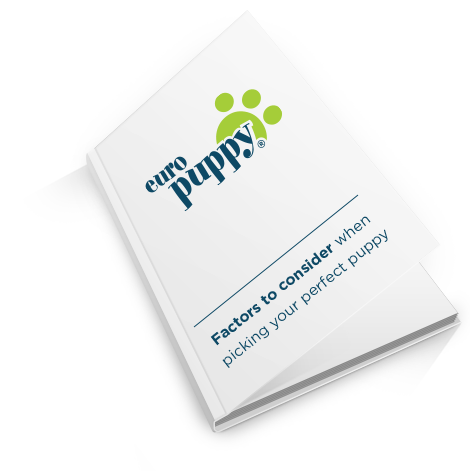
Silver, apricot, fawn or black, black mask and ears and black trace along back.

The Pug is “a lot of dog in a small space”. It is a stubby and muscular dog with a wide chest, straight, very strong front legs and well-muscled hind legs. It received its name Pug from the Latin word that means “clenched fist”.

To communicate with humans Pugs make a grunting nasal noise, somewhat like a pig. Snuggled down at your feet snoring or being close to you, but unobtrusive, are some of its favorite activities. Some of the breed’s talents include: watchdogging and performing tricks.

The Pug is a perky, rambunctious, loyal, affectionate and loving little dog with a happy disposition. It is very devoted, playful, charming, clever and mischievous with a heart-winning personality. This breed is highly intelligent.

This dog requires lots of attention and may become jealous if its owner ignores it. The Pug is sensitive to the tone of your voice; harsh punishment is unnecessary. It can be a bit willful. It bores easily with repetitive training practices. It gets along well with other dogs and pets, and behaves impeccably with both children and visitors.
The Pug makes a good watchdog, it doesn’t bark unnecessarily. It responds well to basic training but needs a gentle hand. The Pug is a strong dog, enjoys energetic games and will keep in better health if given regular exercise. But be careful not to over do it, especially if you see it start to wheeze.

Silver, apricot, fawn or black, black mask and ears and black trace along back.

Fine, smooth, short and glossy. It is easy to groom. Brush and comb with a firm bristle brush and shampoo only when necessary. After bathing, dry it quickly and thoroughly to prevent chill. The creases on the face must be cleaned regularly. This breed is a seasonally heavy shedder.

The Pug catches cold easily and is stressed by hot and cold weather and can suffer chronic breathing problems. Be careful not to over exert and expose a Pug to weather extremes. This breed is prone to allergies and skin problems. The Pug is not the easiest whelper; expect Cesarean Section if breeding.
There is a chance of keratites (inflammation of the cornea) and ulcers on the cornea. The delicate eyes are prone to weeping. This dog tends to wheeze and snore, but on the whole is a very easy-care dog. It is important not to overfeed the Pug, as it eats more than is good for it, quickly becoming obese and living much shorter lives. To minimize the risk of your Pug developing any hereditary health issues, you should buy a Pug puppy from a reputable breeder.
The Pug is good for apartment life. It is relatively inactive indoors and will do okay without a yard. This breed cannot withstand hot or cold weather and should be kept indoors at a comfortable temperature.

Be ahead of the Crowd when a new Pug is available
by signing up to our Puppy Alert.
